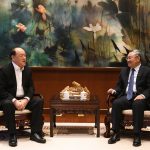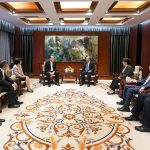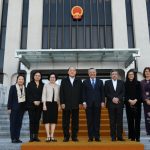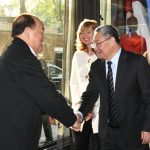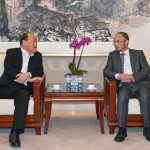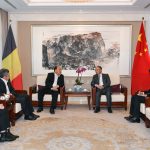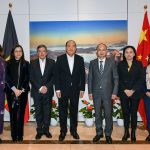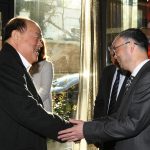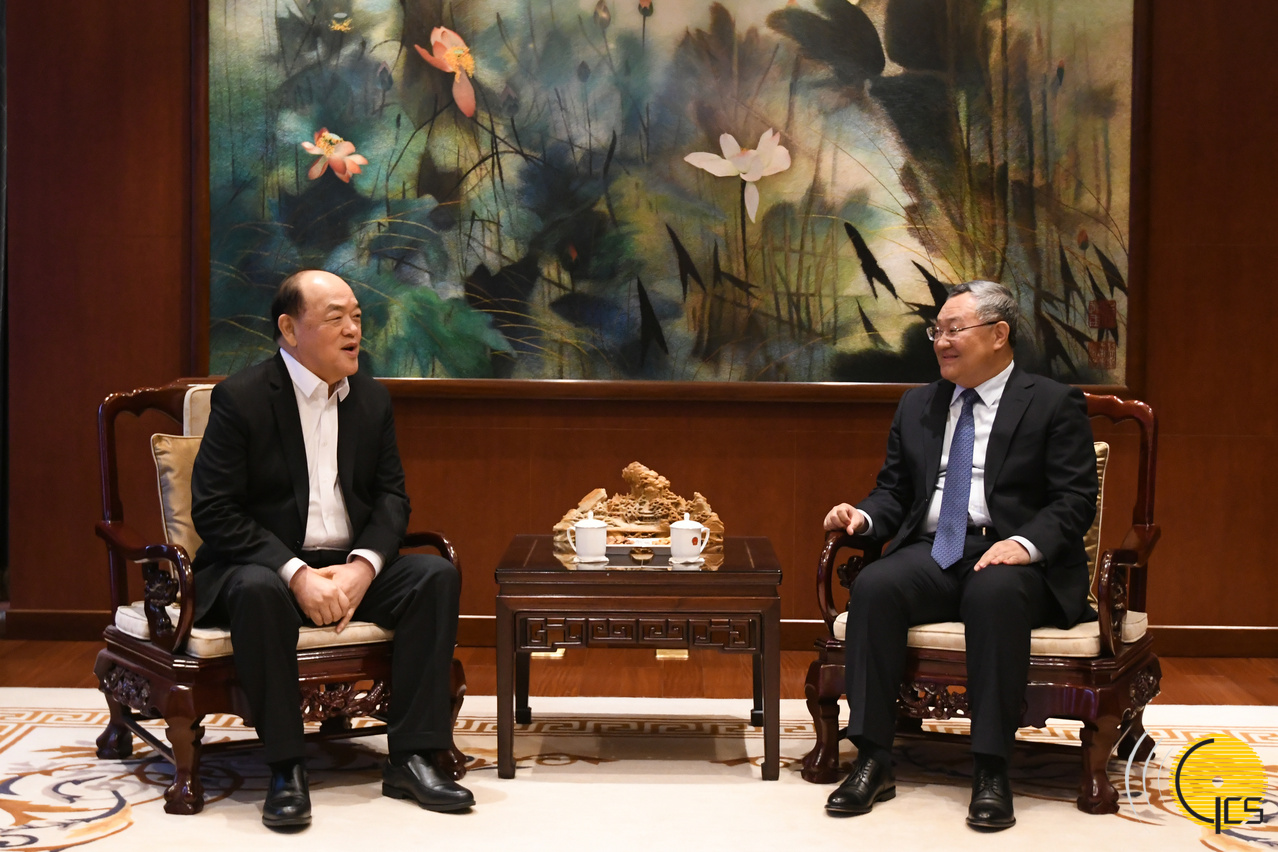 The Chief Executive, Mr Ho Iat Seng, meets with the Head of the Chinese Mission to the European Union, Mr Fu Cong, during his visit in Brussels, Belgium.
The Chief Executive, Mr Ho Iat Seng, meets with the Head of the Chinese Mission to the European Union, Mr Fu Cong, during his visit in Brussels, Belgium.
While in Belgium, the Chief Executive, Mr Ho Iat Seng, had respective meetings with the Head of the Chinese Mission to the European Union (EU), Ambassador Mr Fu Cong, and the Ambassador of China to Belgium, Mr Cao Zhongming. The two sets of discussions covered how to promote ties between Macao and EU member states, including Belgium, as well as to promote people-to-people exchanges between the places.
The meetings took place in the afternoon local time on Tuesday (25 April) in Brussels, the Belgian capital, on the last stop of a visit to Europe by Mr Ho and a Macao Special Administrative Region (MSAR) Government delegation, before their return to Macao in the evening on Thursday (27 April).
Mr Ho explained respectively to the Ambassadors the purpose of the trip to Europe, the first MSAR Government overseas visit in three years since the COVID-19 pandemic. It was to strengthen Macao’s ties with Portugal, Luxembourg, and Belgium. The trip also aimed to promote the latest developments in, and prospects for, Macao, the Guangdong-Macao Intensive Cooperation Zone in Hengqin, and the Guangdong-Hong Kong-Macao Greater Bay Area, while helping businesses and individuals overseas get a better understanding of developments in Macao and mainland China.
The Europe visit was also expected to help expand Macao’s source of international visitors, deepen cooperation in economic and trade matters, and attract a greater number of foreign investors.
Macao has strong prospects for development, the Chief Executive noted during the two meetings. The MSAR Government and the Macao community were working together to grasp the fresh opportunities relating to the development of the Greater Bay Area and the Cooperation Zone, giving full play to Macao’s unique advantages, such as the successful implementation of the “One country, two systems” principle, and being a free port and a distinct customs zone.
The MSAR Government was dedicating utmost effort to its adoption of a “1+4” strategy to diversify the local economy, while actively expanding ties with more countries and regions in relation to economics and trade, tourism, “Big Health”, modern financial services, high and new technology, conventions and exhibitions, sports and people-to-people exchanges, added Mr Ho.
Ambassador Cao said he welcomed the Chief Executive’s visit to Belgium. He noted the MSAR enjoyed unique advantages, such as support from the motherland, and connection to the outside world.
China-Belgium relations had been maintaining good momentum in their development. Macao and Belgium had huge space for cooperation in many fields. The Embassy would work closely with the MSAR Government to deepen exchanges and cooperation between Macao and Belgium, as well as other European countries, with a view to fostering further progress in Macao's economic development, its cultural and tourism sectors, and its society.
In the other meeting, Ambassador Fu welcomed the delegation led by the Chief Executive, and gave a briefing on the current situation regarding China-EU relations and China’s foreign policy towards Europe. Mr Fu said that the Chinese Mission to the EU would support the MSAR to give full play to its inherent advantages and bolster exchanges and cooperation with the EU in the fields of tourism, culture, education, and finance.
Macao officials attending the two meetings were Secretary for Transport and Public Works, Mr Raimundo do Rosário, and the Chief-of-Office of the Chief Executive’s Office, Ms Hoi Lai Fong.


